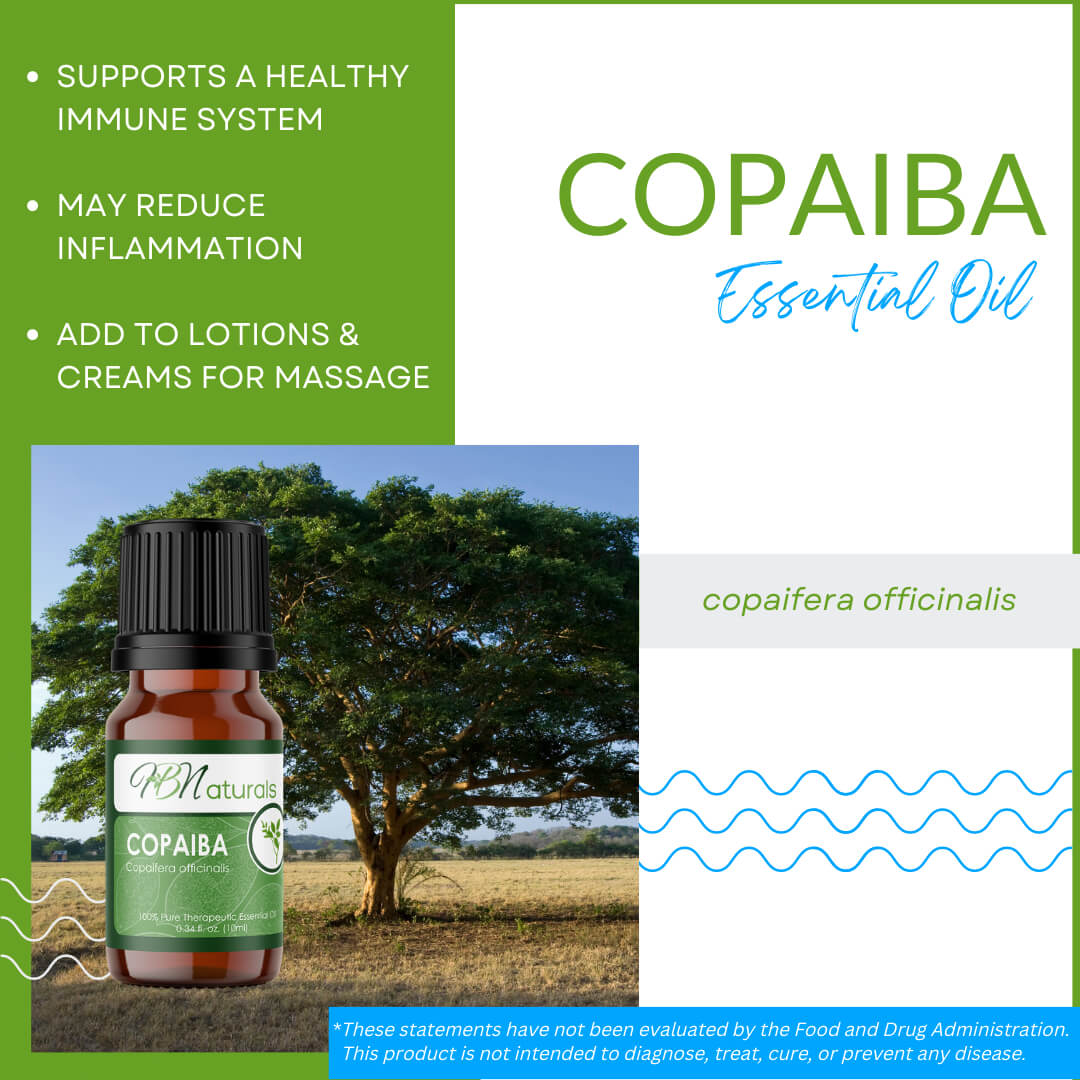

COPAIBA ESSENTIAL OIL
Indigenous tribes in South America have used Copaiba in traditional medicine for centuries as a topical wound healer, to stop bleeding, and for skin sores and psoriasis. It has been used as a strong antiseptic and expectorant for the respiratory system, and as an anti-inflammatory and antiseptic for the urinary tract. It was an official drug in the U.S. Pharmacopeia from 1820 to 1910.*
Copaiba oil contains high levels of beta-caryophyllene (BCP), a cannabinoid that interacts directly with the CB2 receptors in our body and may be neuroprotective and have cardiovascular and immune benefits. Beta-caryophyllene is also found, in lower levels, in other essential oils like Black Pepper and Melissa.*